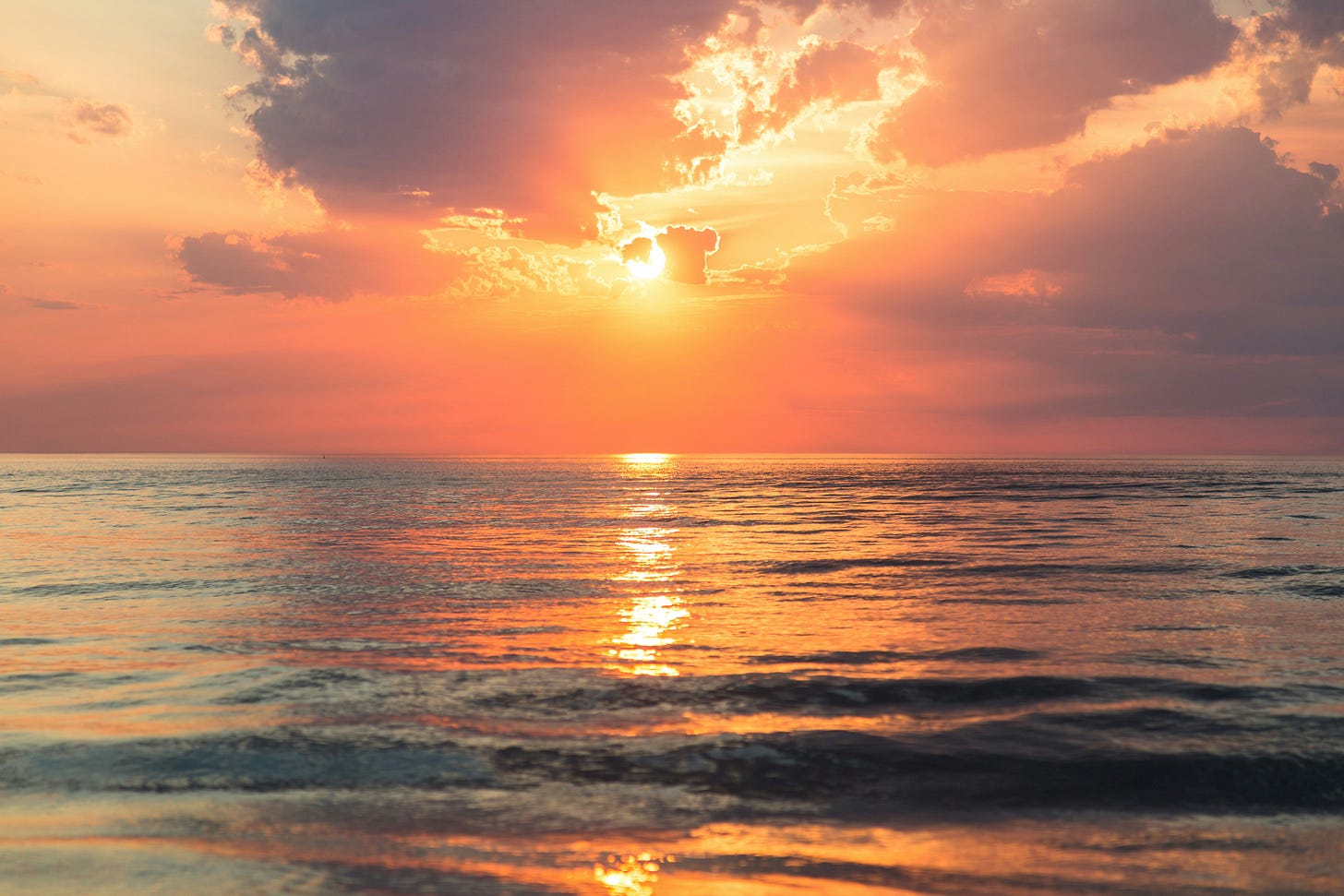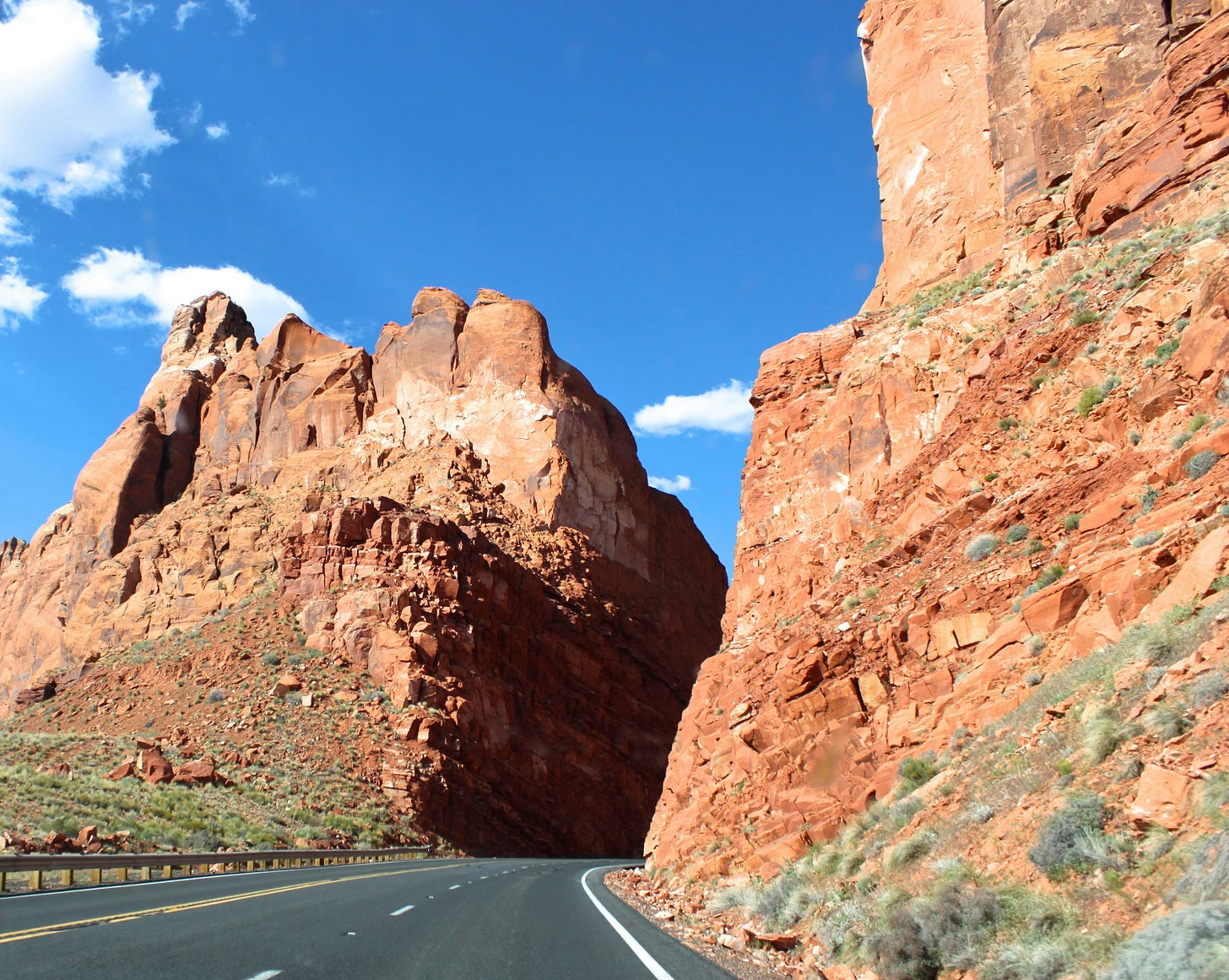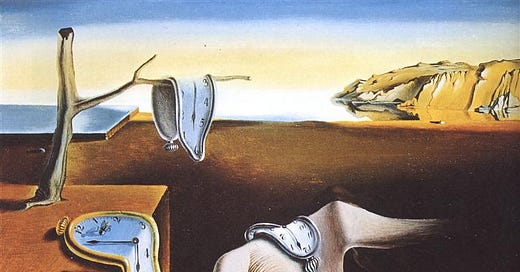I’m taking a pause in my self-introspective, personal essay content to bring you a creative piece which percolated out of the same questions I’ve been contemplating the last few months around time, patience, and urgency.
This piece came out of an intention to spend 15 minutes PLAAAAYING. I spend a lot of time in processing-land (if you haven’t noticed) and while that can lead to helpful insights for me (& hopefully for you, too), I was craving writing time that felt free, uninhibited by genre or form, and that fully channeled my stream-of-consciousness without having an obligation to a final product.
In other words, I was looking to wander into words and see where they’d take me.
I’ve never written anything that could be considered sci-fi 👽, nor have I spent much time writing fiction. So this was all pretty new and I gotta say….I had so much fun! It also felt like my writing practice still served the purpose of guide, leading me closer to understanding what I am feeling and how to deal.
In this instance, imagining a world where we aren’t beholden to clocks nudged me to invite a bit more spaciousness into my interactions now (virtual and in-person). Will the world end if this conversation is allowed the room it needs to breathe and makes me 10 minutes late to my next obligation? Probably not, actually.
I want to credit Jude, a fellow facilitator at Foster for the inspiration. She shared a piece months back titled, “The Calendar Ran Out of Days,” and in my mis-remembering of her prompt I wrote the following. Happy mixup, ain’t it? 🙃
THE CLOCKS ALL MELTED
And we had to learn to rely on the sun to tell us when to rise. Immediately, I noticed I was tired more frequently, moved to rest. Without a sense of what time I had to be where, I started taking more naps. I ate when I was hungry.
Scheduling meetups with friends now had an added layer of complexity, or rather, we had to release our need for exactness. We started saying things like, “I’ll meet you when the sun is directly overhead,” or “I’ll see you at the park at sundown.” At first it was a bit disorienting, as we learned to trust our senses and accept that “sundown” has a window of space that isn’t as precise as we were accustomed to. I’d sit biting my cuticles, trying to cultivate patience, as I struggled to let go of my addiction to timeliness. Slowly, I learned to wait with more ease and while I waited, I watched the sunset. How many of these skyfires had I missed in the beforetime?

Many other things transformed from nuisance to miracle the more we surrendered to it.
We no longer had the pressure of time containers baring down on us. We ended our meetings when we felt complete. There was no time anxiety, no “2 minutes to close this out.” We had to listen to ourselves and to each other, and so in that way, our sense making blossomed. Silences became revered for the treasure they are. We became more tuned into what wasn’t said, but what was still present. We didn’t stop using our words, per-say, but we relied on them less, more able to use the vast array of communication that transpires in our bodies and movements, in our eyes and facial expressions—even in the patterns of our breath.
Travel systems were completely upended. Gone were the days of unlimited flights a day from LAX to JFK. Of course, this was complete chaos at first. Lines of people trying to catch the day’s midday flight. Jammed airports, weddings missed. But eventually, as with everything else, we learned to adjust—forced to simplify. More people opted for longer travel times, taking the train for 3 days or finally taking that cross country road trip they’d been daydreaming about for years.
We slowly but surely loosened our grip on so many things.

It wasn’t until the clocks had melted, we realized what a big brother Time had been, our taskmaster, boot in our necks, dictating our exchanges. Had we been marionettes that whole time? But now! Now, there was space. Lush wide-open terrain inviting us to wander (to ponder, even!), plucking wildflowers of presence and possibility, sucking their sweetness between our teeth.
This little exercise has opened a can of worms I *think* I may continue to explore which is to write a series of fictional pieces that hold the question, What if the apocalypse isn’t so bad? and dares to imagine a reality where the global systems and infrastructures of civilization break down.
The above is my first pass imagining losing Time. I’m sure more could be said and imagined, but I’m complete for now, and poking around on another piece about the crash of the Internet, which is a *ahem* BIG topic (and one that is far more integrated with many of the other systems than I initially realized)—so you may or may not see that one for a while.
Outside of our technological and temporal structures, there’s our social systems—the way we govern, educate, provide healthcare. There’s our economic infrastructures—banking, trade, supply chains. There’s cognitive systems around how we share knowledge and information—news, media, language, cultural norms. And our ecological systems—how we interact with the climate, harness energy and access water. So many things to tear down!!
I’m not going to promise that I will touch all of these, or any of them, for that matter, but to myself, I am promising to further play & explore with this creative exercise because it feels really good and it’s refreshing to use my imagination.
I feel like as adults we don’t get to use our minds for imagination nearly enough! As kids, we live in the land of “what ifs,” make-believe, and pretend. I want more of that!
Depending on where you land on the political spectrum, you may or may not feel like things are completely on fire and have been for a long time. I know for me, I’ve had a “burn it down” mentality for the whole of my adult life. Years ago, at a panel discussion at USC one of the speakers challenged the audience (and this is definitely paraphrased), “It’s not enough to want to burn it down, we have to have the creativity and curiosity to imagine what we’d build in it’s place.”
I am sure that this play-space I am embarking on will not lead me to all the answers, or guarantee any answers for that matter. These systems are incredibly complex and interconnected in ways that would take me years of research to fully understand. But I believe that art can lead us to truths, and even more than that, I know art can lead us to hope and refreshed perspectives—and I know, I personally, could use a heavy dose of both.
Continuing to poke around in the dark,
Jasmine
🌱 Are you craving a communal space to write? Join me at my weekly writing circle. Tuesdays @ 10AM pst, 1PM est. Free & incredibly low-stakes.


